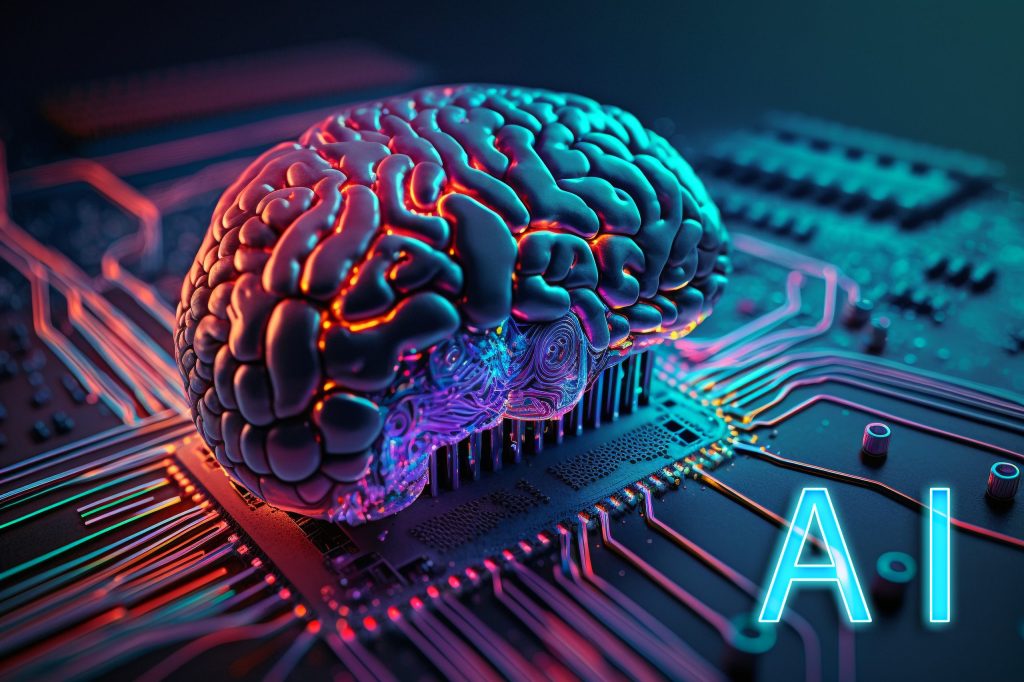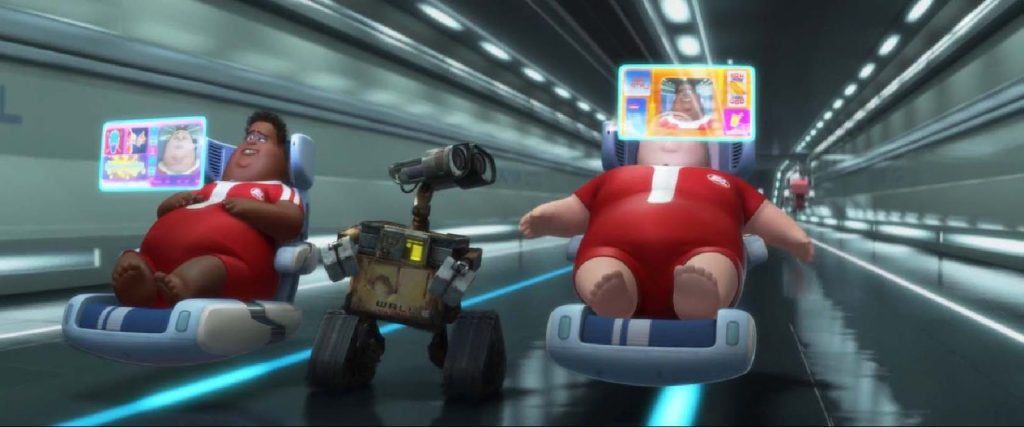What a world we live in! Advances in technology never cease to amaze, and as the human race surges ever forward, advances in artificial intelligence are finding uses in every cranny of life. Writers and bloggers such as myself are awash in tools to bring you some of the greatest content our hearts can desire, and yet I am going to argue against it.
My first experience with an AI text generator was in running a baseball tournament. The scoring system we used generated a box score recap based on the data entered during the game. The technology is brilliant, but it is not flawless. The text generator misses conjunctive words and has errors in plurals and verb tense. What made this interesting is when the local newspaper took those recaps and printed them word for word, errors and all. Suffice it to say, the AI output was not very print worthy by AP standards. I’m certain a copy editor somewhere got their wings when this AI-generated piece was read aloud. The paper editor was slightly embarrassed and they were more careful with auto-submissions from there forward.
About a week ago, I received an email from a tech company offering to re-imagine my website with a text generator, claiming up to twenty blog posts per day, automatic responses to messages and emails, and increased user engagement without ever touching my keyboard. The Luddite in me does not believe this writer’s utopia exists, yet apparently it does in the form of a learning AI. This bot (for lack of a better term) would take all the cares of tedious writing away from me to focus on what is really important in life. It would do all the heavy lifting while I sat back and basked in it’s automated glory. My question would be, what is really important in life to a writer other than writing?

Of course, there are many important things in anyone’s life. I do not ask that rhetorical question to diminish importance of important things like family, health, friends, hobbies and the like. I ask it from a writer’s perspective. If something else is writing for me, am I even a writer? I’ve had enough rejection letters from publishers that have made me question my goals in writing, however, I have not hit rock bottom in the sense that I need a computer to write for me. I feel that avenue is disingenuous for anyone to take up the mantle of “writer” without actually doing the writing.
When I wrote for That Hashtag Show, we would have events like San Diego Comic Con or Star Wars Celebration where the THS writing team would be all hands on deck to crank out short and quick articles on breaking pop culture news. Each writer was assigned a genre they liked and we were free to offer our two cents wherever it fit in the article. The goal was not an in-depth analysis of anything, but a quick blurb on what was announced, what it could mean, and anything else colorful you could add in a few minutes to get it published as quickly and coherently as possible. It was a tense, nerve wracking, and fun writing blitz where we would race other outlets to be the first to report on it. It was writing under pressure and I loved it. The exercise taught me speed, conciseness, and accuracy that a writer does not always get to experience in leisurely writing. Those tough assignments made me a better writer.
While I am certain AI can do it faster, AI cannot add the same flavor as I can. AI is not excited or angry about the treatment of a character in a film. AI is not emotional about the beginning, end, or reboot of a beloved franchise. AI hasn’t collected memorabilia since childhood from it’s favorite films or comic books. AI does not possess the human experience that I have. For that reason alone, anything written by AI might be beautiful but will forever remain hollow. An echo of the algorithms that drive it, churning out content because it has to, not because it loves to.

When I bought the vehicle I drive now, it came equipped with onboard satellite navigation, cameras all around, Blue Tooth, and power-everything. At first, I scoffed at the idea of needing all that luxury just to move myself from A to B. After three years of driving it, now I cannot imagine driving anywhere without all those bells and whistles. I eventually embraced the computer program that I once loathed. When I grew accustomed to the technology, it became integrated into my daily commute. My car tells me when to turn, when there is a traffic jam ahead, and where the nearest fast food restaurant is without me having to lift a finger. All this is beginning to sound like what that email offered me about writing, but there is a distinct difference.
That difference is my imagination.
While my car may tell me where to go and when to turn, I am still the driver. If I am out on a drive and the sat-nav tells me to turn right in 100 feet, but I happen to know that in 150 feet there is a scenic overlook, or there is a strange looking tree I want to see closer, or maybe the largest ball of tinfoil and rubber bands in the world is right there, I can determine if I make the turn or not. My imagination gives me the option. Is the AI interested in a scenic overlook or getting from A to B in the most efficient way possible? One writer I found argues that AI does have an imagination, or at least can learn one.

An author named Teresa Spangler writes a great piece on Linked In called, Unlocking the Power of Imagination: How Humans and AI can Collaborate for Innovation and Creativity. She explains that AI could develop an intellectual imagination. “AI can identify patterns and connections between data sets that humans may not have noticed, leading to new ideas and theories.” I can see where she is going with that thought, but I’m not there yet. Humans need to maintain an edge by training their brain to link these patterns, much like Batman would in a mystery case. However I’m also not going to swim against this current just to be different. Not everyone can have the detective skills of Batman. But if you continue to rely on AI to solve your lack of imagination in dealing with difficult tasks, you are not exercising your mental muscles. Have you ever heard someone say, “My brain hurts”? No pain, no gain. Use your human thinking capacity as often as you can. Otherwise we may soon find ourselves portraying real-life versions of the humans in Disney-Pixar’s film, Wall-E.

She also says, “AI is not a threat to human imagination but rather a tool that can help us unlock our full imaginative potential. By collaborating with AI, humans can gain new insights and perspectives that inform their imaginative processes.” This is true, and I will admit that I have used a web-based scenario generator to feed dead space in some of my writings. To be clear, this was a far cry from being AI. This is probably an early attempt at AI where some kids who have computer savvy and a love for Dungeons and Dragons put their idle time to work. It strings together predetermined people, places, and things in random orders like a Clue game ending: The murderer was Colonel Mustard in the conservatory with a candle stick. In the end, she and I can agree on her closing premise, that “Imagination is a human trait that AI cannot replicate.” Amen to that, sister. For now.

I’m not against AI. I’m really not. What I am against is when a writer or a blogger uses AI to generate content and then says it is theirs. It isn’t. It’s cheating their readers of insight into the writer’s actual thoughts. Using AI in that manner simply to increase content output is lazy. It’s a perverted theft of the great and powerful Oz, but the man (or woman) behind the curtain isn’t doing anything worth paying attention to. Higher education agrees with me here. Many universities and high schools have adopted anti-AI paper writing bots and text generator policies against students trying to use AI to write that term paper that’s due by midnight tomorrow.
“In an environment in which technology outpaces democracy, we need to develop an ethic of responsibility on the technological frontier. Powerful tech companies cannot treat the ethical and social implications of their products as an afterthought. If they simply rush to occupy the marketplace, and then apologise later if necessary – a story we’ve become all too familiar with in recent years – society pays the price for others’ lack of foresight.”
Rob Reich, Professor, Stanford University

I’m sure that one day, AI will develop an imagination of some sort. Heck, I’m even writing about something like that now with one of my works in progress called H.A.M.R.s. but it has more of a Terminator vibe than a computer brain wanting to see a giant ball of tinfoil. Nevertheless, until that day, I’ll hang on to my imagination and flex it regularly. That is what separates us from machines. It is also what makes writing so much fun.
I’ll leave you with two final thoughts. For the first, I will make a solemn pledge that anything you read with my name on it or attached to it will be written by 99% human imagination and by tired, pre-arthritic fingers on my little keyboard. In case you’re wondering, I am reserving the 1% in case I use the web-based scenario generator again. Second, another writer whom I admire had this to say about humans and their imagination, and I wholeheartedly agree with her:
“Imagination is not only the uniquely human capacity to envision that which is not, and, therefore, the foundation of all invention and innovation. In its arguably most transformative and revelatory capacity, it is the power that enables us to empathize with humans whose experiences we have never shared.”
J.K. Rowling
Exercise your imagination.
Stay human.

